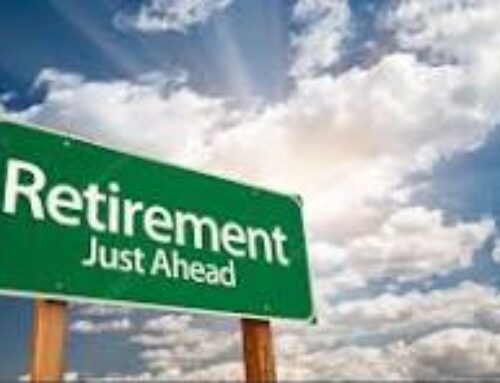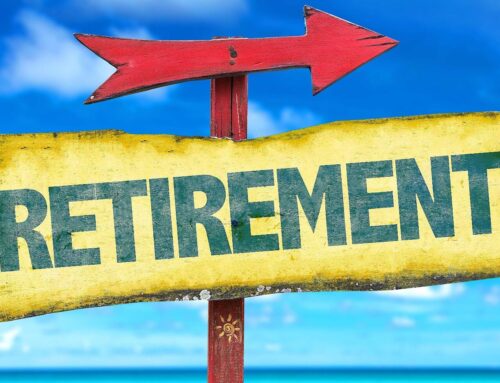Saving Early & Letting Time Work for You
The earlier you start pursuing financial goals, the better your outcome may be.
As a young investor, you have a powerful ally on your side: time. When you start saving and investing for retirement in your twenties or thirties, you can put it to work for you. 
The effect of compounding is huge. Most people underestimate it, so it is worth illustrating. We will use reasonable annual return rates to do so – we will assume an investor can earn an average of 6-7% a year on his or her portfolio.
What if you invest $500 a month at age 25 & realize a 6% annual return? Under those hypothetical conditions, you would become a millionaire at age 65. To be precise, you would need to invest $499.64 per month starting at age 25 and keep it up for 40 years.1
At age 25, saving and investing $500 each month may seem like a luxury. It is closer to a necessity. In 2055, having $1 million or more saved up for retirement may be essential. Over 40 years, inflation will make $1 million worth less than it is today. The good news is that if your investments return more than 6% in a year, you could reach and surpass that $1 million mark faster.
It need not take 40 years for compounding to make a difference for you. Shortening the timeline of this hypothetical example, after ten years of saving and investing $500 a month at a 6% annual return, you would end up with $81,939.67 compared to the $60,000 you would realize from merely saving the cash sans investment.2
The earlier you start, the greater the compounding potential. If you start saving and investing for retirement in your twenties, you gain a definite compounding advantage over someone who waits to save and invest until his or her thirties. Another comparison bears this out.
Take two investors, both contributing $200 per month into their retirement accounts. One does this for 40 years starting at age 25. The other does this for 30 years starting at age 35. Again, we assume a 6% annual return for each account. The investor who starts at 25 winds up with $402,492 at age 65, while the one who started at 35 amasses just $203,118 over 30 years.3
Just ten years of difference in the start time, yet the money almost doubles by age 65. This is a compelling argument for starting to save for retirement (and other goals) as early as possible.
Even if you start early & then stop, you may out-save those who begin later. What if you contribute $5,000 to a retirement account yearly starting at age 25 and then stop at age 35 – no new money going into the account for the next 30 years? That is hardly ideal, yet should it happen, you still might come out ahead of someone who begins saving for retirement later.
As J.P. Morgan Asset Management research notes, an investor who consistently directs $5,000 a year in a retirement account from age 25-35 with a 7% continued annual return ends up with $602,070 at age 65 even if contributions cease after age 35. The really startling part: that investor actually amasses more retirement savings than an investor who steadily contributes $5,000 a year from age 35-65 at the same rate of return – he or she realizes just $540,741.1
This is all worth noting, because many millennials seem wary of investing. This spring, a Bankrate MoneyPulse survey indicated that only 26% of Americans under age 30 are investing in equities. In July 2014, another Bankrate survey found that Americans 18-29 favored cash investments (i.e., bank accounts and bank-based investment vehicles) above all others. Student loans and child-rearing costs reduce investing potential for many millennials, but as these survey results hint, some are cynical about the whole investment process.4,5
If you were born in the late eighties to early nineties, you are old enough to remember the dot-com bust of the early 2000s and the crushing bear market of 2007-09. This may have given you an early negative view of equities; these events are clear examples of how risk plays a part in this type of investment.
The reality, though, is that most people planning for retirement need to build wealth in a way that outpaces inflation. Equity investing offers a route toward this objective, one many investors have successfully taken. Directing your savings into equities can be helpful, because broadly speaking, you will not retire merely on the contributions you make to your retirement accounts. You will retire on the compounded earnings those invested assets achieve.
Registered Representative, Securities offered through Cambridge Investment Research, Inc., a Broker/Dealer, Member FINRA/SIPC. Investment Advisor Representative, Cambridge Investment Research Advisors, Inc., a Registered Investment Advisor. Cambridge and North Light Financial Services are not affiliated. Cambridge does not offer tax advice. Office of Supervisory Jurisdiction: 46 Accord Park Drive / Norwell, MA 02061 Phone: 781-878-4063
This material was prepared by MarketingPro, Inc., and does not necessarily represent the views of the presenting party, nor their affiliates. This information has been derived from sources believed to be accurate. Please note – investing involves risk, and past performance is no guarantee of future results. The publisher is not engaged in rendering legal, accounting or other professional services. If assistance is needed, the reader is advised to engage the services of a competent professional. This information should not be construed as investment, tax or legal advice and may not be relied on for the purpose of avoiding any Federal tax penalty. This is neither a solicitation nor recommendation to purchase or sell any investment or insurance product or service, and should not be relied upon as such. All indices are unmanaged and are not illustrative of any particular investment.
Citations.
1 – businessinsider.com/amazing-power-of-compound-interest-2014-7
2 – quickenloans.com/blog/investing-101-how-to-get-started [8/27/15]
3 – businessinsider.com/saving-at-25-vs-saving-at-35-2014-3 [3/25/14]
4 – cnbc.com/2015/08/24/more-millennials-say-no-to-stocks-and-advisors-adapt.html [8/24/15]
5 – bankrate.com/finance/consumer-index/financial-security-charts-0714.aspx [7/21/14]





